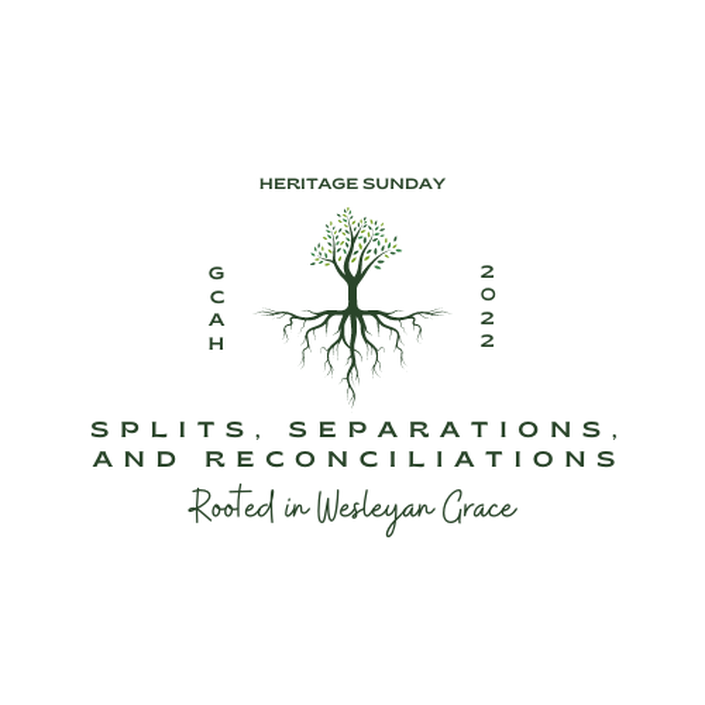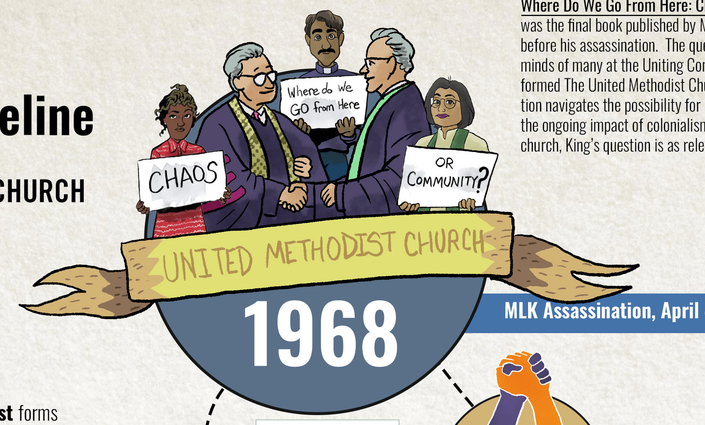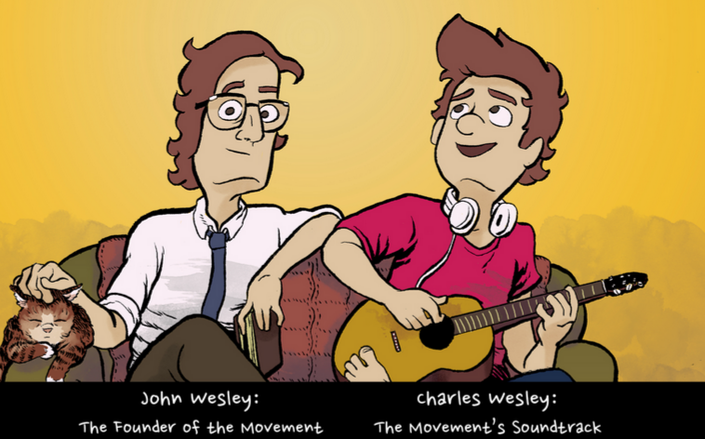The Ministry of Memory
Over these modules, you'll dive into the histories of Methodism and experiment with the methodologies of living history. It is our goal for history to come to life and for you, after completion of this certification, to be able to teach, preach, display, and form community around our common histories.
As part of this certification, we expect that you keep a journal throughout this course, allowing dedicated space to reflect on and interact with the history learned.

The certified course draws from....

Modules 1-5
The first four modules of this course are a replication of "Radicle Methodism: Back to Our Roots." Each of these modules comes with introductory text found in the Participant's Guide, reflective questions found in the Leader's Guide, and primary sources for further reflection found in the Primary Source Guide.

Modules 6-8
The second piece of this certification are modules from "Local Church Historians' School" which provides persons with practical ways to identify, assess, record, preserve, and present history to local congregations and other communities. The modules we've chosen for this certification focus on creating a program of history (instead of archival practices and theories).

Modules 9-20
The final piece is a deeper-dive into Methodist history, looking at the specific and diverse ways that Methodism has blossomed around the world. GCAH worked with the official ethnic plans of the UMC to produce these histories, and we are beyond honored to present them to you. We've also created deep-dives into topical histories, including Methodists and: economics, voting, gender, education, medicine, and young persons.
These modules are still in production and will be available by Fall 2024.

The Ministry of Memory
"Memorials and monuments are contested spaces. Memoirs are a popular genre in publishing. Memories often make or break court cases. Many people fear losing memory as they grow older. One scholar has discussed “religion as a chain of memory”; certainly the myths and rituals of religious traditions help us remember, even while history often lies in an uneasy relationship to memory. Memories are all around us, enabling a human sense of identity, belonging, and exclusion, as our relationships with our personal and public pasts are negotiated, discussed, rewritten, and disputed."
-The Association of Public Religion and Intellectual Life
Example Curriculum
- Topic 1: History and Itineracy (24:33)
- 1.1 Stepping Out in Faith
- 1.2 The Program of History Defined
- 1.3 Connectional History: Commissions and Societies
- Topic 1: Tasks
- Topic 2: History and Ministry in Conversation (44:48)
- 2.1 Videos from Other Churches (5:06)
- 2.2 Seeing Space: Take a Fresh Look
- Topic 2: Tasks
- Module Review (1:03)
- Course Glossary
- Module Introduction
- Topic 9: Local Research
- 9.1 The Local Library
- 9.2 The Local Courthouse
- 9.3 Local Historical Societies
- 9.4 Preparing to Research
- Topic 9: Tasks
- Topic 10: Regional Resources and Cultural Change
- 10.1 Regional Resources
- 10.2 Significant Cultural Paradigms (22:54)
- 10.3 Notes on Information Integrity
- Module Review and Tasks




